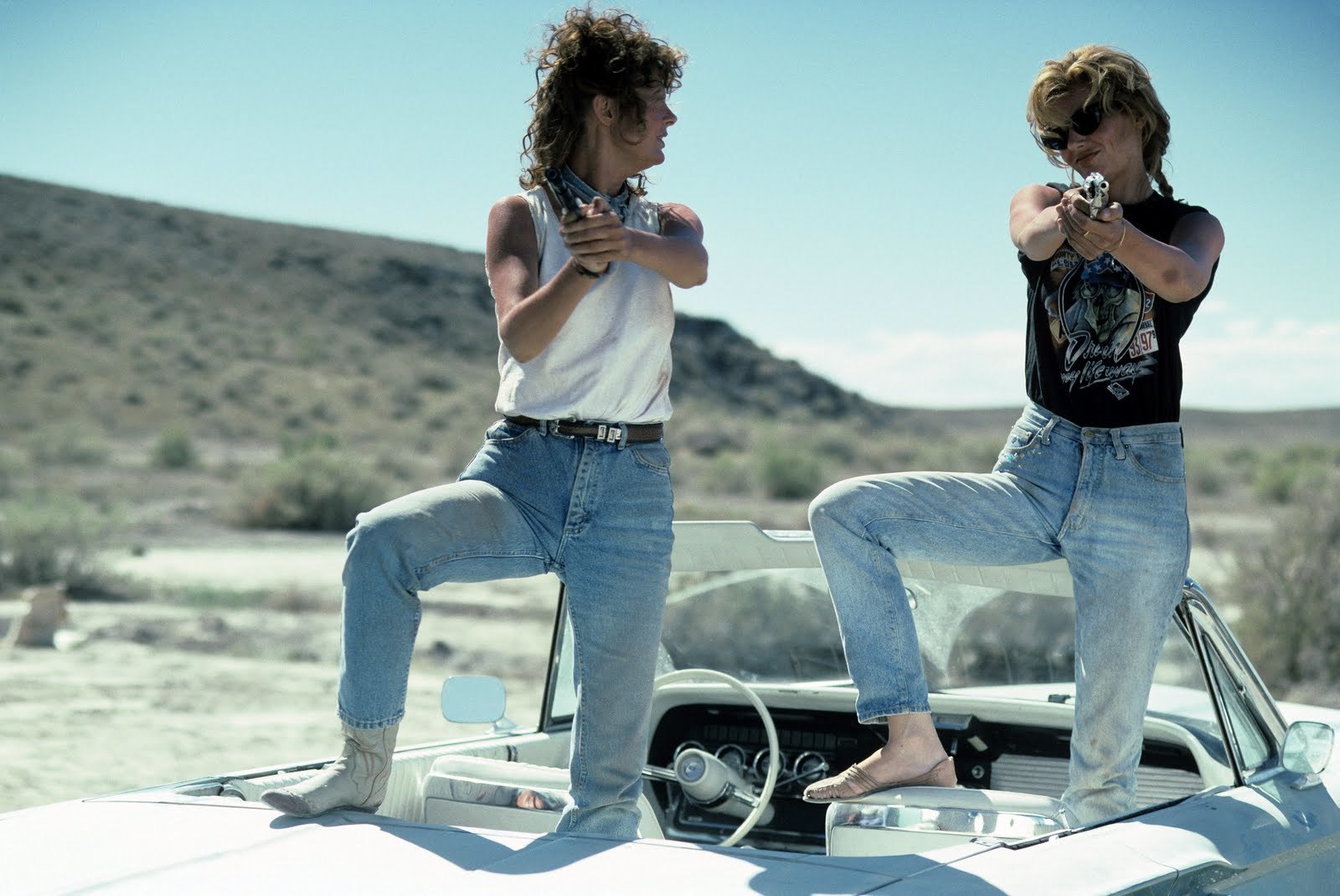If you haven’t seen the 1991 box office smash hit Thelma & Louise in which Geena Davis and Susan Sarandon — aka who we want to be when we grow up — embark on a road trip /feminist-criminal escapade across America, then you should get on that stat. The avalanche of awesome female-led buddy movies it was predicted to spark never actually got made.
The media often reacts to female-led blockbusters by saying they are proof that films telling women’s stories can succeed, heralding a new feminist utopia of filmmaking; but this utopia just doesn’t ever actually materialize. “It happened to me twice,” Davis told the Guardian in an interview yesterday, “That’s how I became aware of the phenomenon.”
“After Thelma & Louise, which was pretty noticed and potent and significant, [people were saying] ‘This changes everything! There’s going to be so many female buddy movies!’ and nothing changed. And then the next movie I did was A League of Their Own, which was a huge hit and all the talk was, ‘Well now, beyond a doubt, women’s sports movies, we’re going to see a wave of them because this was so successful.’ That’s balls. It took 10 years until Bend It Like Beckham came out. So, there was no trend whatsoever,” Davis said, adding, “It keeps happening, and we keep falling for this notion that now there’s Bridesmaids, now there’s Hunger Games… It hasn’t started a trend.”
Both Davis’ personal anecdotes and research from the Geena Davis Institute on Gender in Media paint a pretty bleak picture of the current state of affairs in film, with female representation having stagnated at around 17% since 1946. However, Davis praises the current crop of female Hollywood stars, saying “The women in the industry, I think, are remarkable,” noting that, “A lot of people are becoming very comfortable about saying it’s not fair.” Women like Jennifer Lawrence, Patricia Arquette and Amanda Seyfried who have spoken out about unequal pay, Maggie Gyllenhaal and Meryl Streep who have denounced the ageism apparent in Hollywood sexism, and Carey Mulligan, Anna Kendrick, Greta Gerwig, Kristen Stewart and so many more who have expressed their frustration at the lack of good roles for women and sexist casting practices.
Clearly, sexism is deeply entrenched in the film industry, but Davis has some simple solutions that could be activated immediately. “The one area where we could reach parity overnight is on screen, absolutely overnight,” she says, explaining: “My two-pronged solution to the entire problem is just before you cast a film or a TV show, go through the characters and change a bunch of first names to female – hooray! Now you’ve got a gender-balanced cast, you’ve got female characters who are un-stereotyped because they were written actually for a man and then, wherever it says, ‘a crowd gathers’, put ‘which is half female’. And that’ll happen.”
It is a suggestion that several female actors have already been trying to implement themselves, with Sandra Bullock claiming the initially male lead role in George Clooney’s next film, and both Julia Roberts and Emily Blunt doing the same for their upcoming projects.
Geena Davis will give the keynote speech at her Institute’s Global Symposium on Gender in Media during the BFI London Film Festival on 8th October, the first time the symposium has been held outside of the US.
